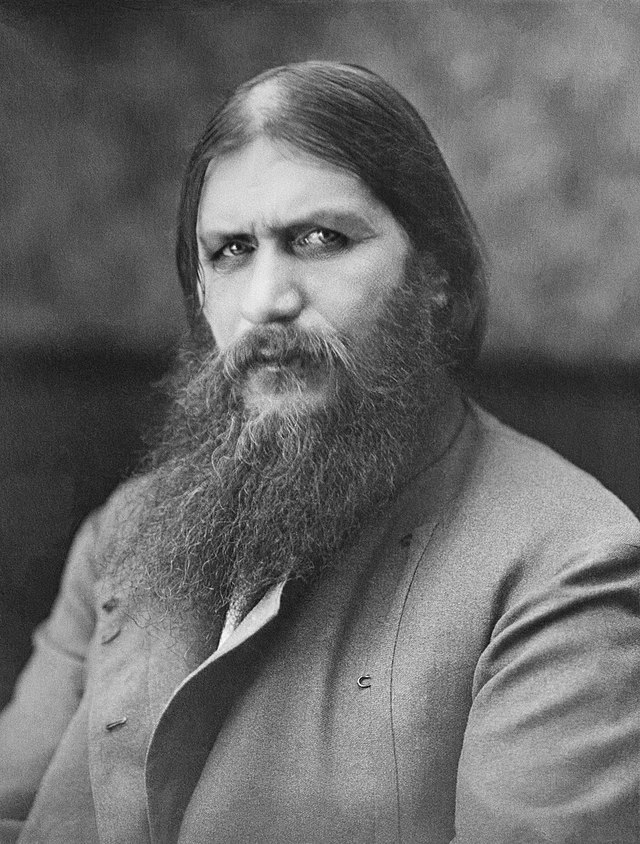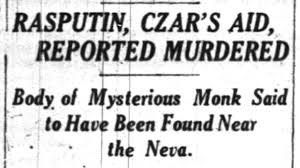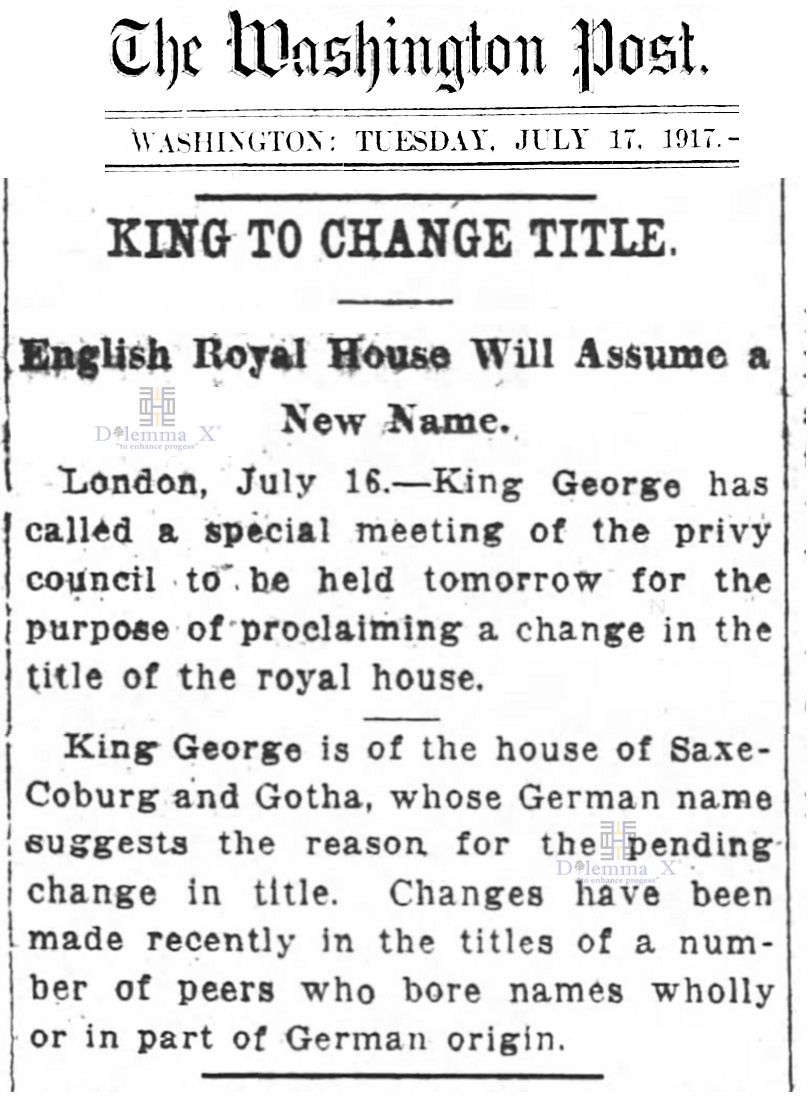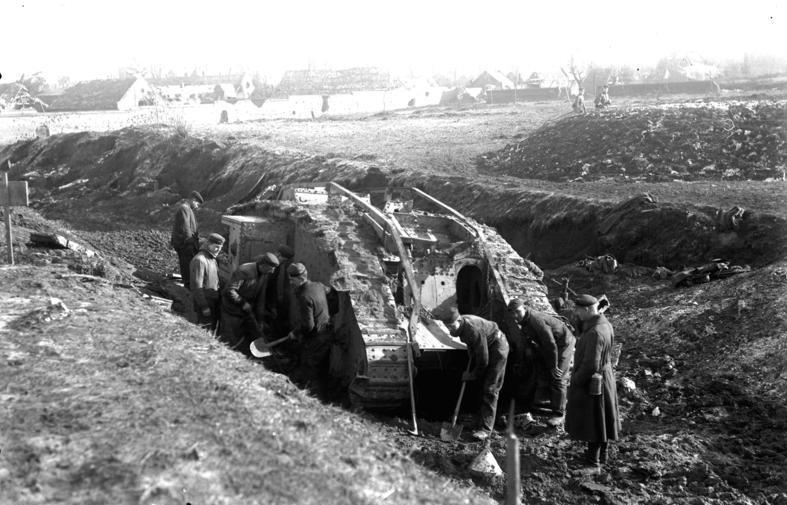This book takes place during the war in 1917.
Edward and Forbesson make reference to Russia and Rasputin. Grigori Yefimovich Rasputin (21 January 1869 – 30 December 1916) was a Russian mystic and faith healer. He is best known for having befriended the imperial family of Nicholas II, the last Emperor of Russia, through whom he gained considerable influence in the final years of the Russian Empire.
Later Cook and the servants read about his death. A group of nobles led by Purishkevich, Grand Duke Dmitri Pavlovich and Prince Felix Yusupov decided that Rasputin's influence over Alexandra threatened the Russian Empire. They concocted a plan in December 1916 to kill Rasputin. Rasputin was murdered during the early morning on 30 December1916 at the home of Prince Yusupov. He died of three gunshot wounds, one of which was a close-range shot to his forehead.
In the front Messines Ridge is blown. The Battle of Messines (7–14 June 1917) was an attack by the British Second Army, on the Western Front, near the village of Messines in West Flanders, Belgium, during the First World War.The attack forced the Germans to move reserves to Flanders from the Arras and Aisne fronts, relieving pressure on the French.The important incursion in 1917 is Ypres. The Third Battle of Ypres, also known as the Battle of Passchendaele, was a campaign of the First World War, fought by the Allies against the German Empire. The battle took place on the Western Front, from July to November 1917, for control of the ridges south and east of the Belgian city of Ypres in West Flanders, as part of a strategy decided by the Allies at conferences in November 1916 and May 1917. Edward starts working for the Ministry of Food, and his first superior is Lord Devonport. The Minister of Food Control (1916–1921) and the Minister of Food (1939–1958) were British government ministerial posts separated from that of the Minister of Agriculture.
Hudson Ewbanke Kearley, 1st Viscount Devonport (1 September 1856 – 5 September 1934), styled Lord Devonport between 1910 and 1917, was an English grocer and politician. He founded the International Tea Company's Stores, became the first chairman of the Port of London Authority, and served as Minister of Food Control during World War I.
Sadie talks about the women's land army. The Women's Land Army (WLA) was a British civilian organisation created in 1917 by the Board of Agriculture during the First World War to bring women into work in agriculture, replacing men called up to the military. Women who worked for the WLA were commonly known as Land Girls (Land Lassies). The Land Army placed women with farms that needed workers, the farmers being their employers. The members picked crops and did all the labour to feed the country.
The newspapers bring news about the Tsar's abdication during the riots in Russia. Emperor Nicholas II abdicated the throne of the Russian Empire on 2 March 1917, in the midst of World War I and the February Revolution. The Emperor renounced the throne on behalf of himself and his son, Tsarevich Alexei Nikolaevich, in favor of his brother Grand Duke Michael Alexandrovich. The next day the Grand Duke refused to accept the imperial authority, stating that he would accept it only if that was the consensus of democratic action by the Russian Constituent Assembly, which shall define the form of government for Russia. With this decision, the rule of the 300-year-old House of Romanov ended. Power in Russia then passed to the Russian Provisional Government, signaling victory for the February Revolution.
America declares war on Germany on April 6. On April 4, 1917, the U.S. Senate voted in support of the measure to declare war on Germany. The House concurred two days later. The United States later declared war on German ally Austria-Hungary on December 7, 1917.
Another main incursion was teh Battle of Arras. The Battle of Arras was a British offensive on the Western Front during the First World War. From 9 April to 16 May 1917, British troops attacked German defences near the French city of Arras on the Western Front. The British achieved the longest advance since trench warfare had begun.
Laura and Louisa are in Poperinghe, helping bring injured soldiers in the ambulance. During World War I, the town was one of only two in Belgium not under German occupation. It was used to billet British troops and also provided a safe area for field hospitals. Known familiarly as "Pop", it was just behind the front line and formed an important link for the soldiers and their families, especially through the rest house known as Talbot House (or "Toc H").





















No comments:
Post a Comment